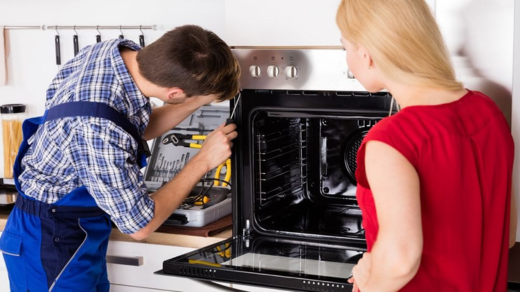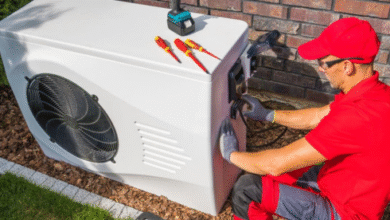Let’s be honest—microwaves don’t get the credit they deserve. Sure, they’re not flashy like a new smart fridge or as revered as a gas range, but they’re the quiet workhorses of the kitchen. Morning coffee reheat? Done. Quick leftovers? Handled. Melted butter for baking? Perfectly timed. It’s the appliance we all rely on when we need food, fast.
So when it stops working? It’s not just annoying—it’s chaotic. Suddenly, you’re awkwardly trying to toast last night’s lasagna or warm soup on the stovetop and wondering how people survived in the pre-microwave era. Sound familiar? That’s when your search history quickly becomes a series of variations on “microwave repair near me.”
The good news? Most issues are fixable. And you’re not the only one who’s had a microwave go rogue at the worst possible moment.
Microwaves: Small Appliance, Big Impact
Think about how many times you use your microwave in a week. Or a day. It’s not just for reheating anymore. You probably use it for everything from defrosting chicken to steaming veggies to making mug cakes at midnight.
Microwaves make life easier—until they don’t. And when they stop doing their job, that ease vanishes. Fast.
Whether it’s a cheap countertop model or a built-in over-the-range unit, when your microwave fails, your kitchen rhythm takes a hit.
What Goes Wrong With Microwaves?
Microwaves might look simple on the outside—door, keypad, light—but they’ve got a lot going on under the hood. Magnetrons, capacitors, diodes, fuses… the inner workings are more complex than most people realize.
Here are some of the most common microwave problems:
- It’s not heating food – Usually a sign of a faulty magnetron or capacitor.
- Sparks or burning smells – That’s your cue to stop using it immediately.
- Turntable not spinning – Could be a bad motor or worn-out coupler.
- Touchpad or buttons not working – Control panel issues or internal wiring problems.
- Strange noises – Buzzing, humming, or grinding means something’s off.
- The door won’t close or seal properly – Which means the microwave won’t run.
Any one of these issues can turn your microwave into a fancy-looking storage box. But the good news? A professional can usually fix it—and often faster than you’d expect.
DIY or Don’t: Should You Try Fixing It Yourself?
Here’s the thing: microwaves are not the most DIY-friendly appliances. Unlike swapping a fridge water filter or tightening a stove knob, working inside a microwave comes with real risk—like electric shock risk.
Even unplugged, some microwave components (like the high-voltage capacitor) can retain a dangerous charge. So unless you’re trained and know exactly what you’re doing, this isn’t the place to experiment.
Sure, you can check for obvious things like a blown fuse (if you’re comfortable doing so), or make sure the outlet isn’t the problem. But for anything involving heat generation, wiring, or internal components? Call a pro.
What to Look for in a Microwave Repair Technician
So, you’ve decided to call for help. Great. Now comes the next challenge: choosing someone you trust. A good microwave oven repair technician doesn’t just get the unit working again—they do it safely, efficiently, and with no mystery charges tacked on.
Here’s what to look for:
- Experience with your microwave type – Whether it’s countertop, built-in, or over-the-range.
- Familiarity with your brand – Samsung, GE, Panasonic, LG… they all work a bit differently.
- Fast response times – Because no one wants to eat cold leftovers for a week.
- Transparent pricing – No vague “we’ll know after we open it up” quotes.
- Warranty on repairs – Shows confidence in their work.
If you’re hunting for microwave repair near me, narrow it down to local techs with solid reviews and real appliance expertise—not just general handyman services.
When It’s Worth Repairing (And When It’s Not)
Here’s the hard truth: not every microwave is worth fixing. Sometimes, it costs more to repair than to replace—especially for basic countertop models.
But if yours is a high-end unit, built-in with your kitchen cabinetry, or only a few years old? Definitely worth exploring a repair.
Generally, it’s worth fixing if:
- The microwave is under 8 years old.
- The repair cost is less than half the cost of a new unit.
- It’s a higher-end or built-in model.
- It hasn’t had multiple previous issues.
A reputable technician will tell you straight up whether it’s time to fix it or say goodbye.
Keeping Your Microwave Happy
Want to avoid another breakdown? A little care goes a long way. Here’s how to stretch your microwave’s lifespan:
- Don’t run it empty – It can damage internal components.
- Use microwave-safe containers only – Metal and microwaves? Not friends.
- Clean up spills quickly – Especially sugary splatters.
- Don’t slam the door – It wears out the latch and sensor.
- Give it ventilation – Especially if it’s built-in. Overheating shortens its life.
Microwaves aren’t high maintenance—but they do appreciate a little respect.
Final Thoughts: Get Back to Easy Meals, Fast
Nobody plans for their microwave to break. But when it does, the search begins—fast. And with so many options out there, it’s easy to get overwhelmed trying to find the right fix. But trust us, it doesn’t have to be complicated.
If you’re looking for microwave repair near me, microwave repair, microwave oven repair, take a breath. Help’s out there. With the right technician, most microwave issues can be handled quickly, affordably, and safely—getting you back to warm meals and late-night snacks in no time.
Because at the end of the day, warm coffee and reheated pasta shouldn’t be complicated.





